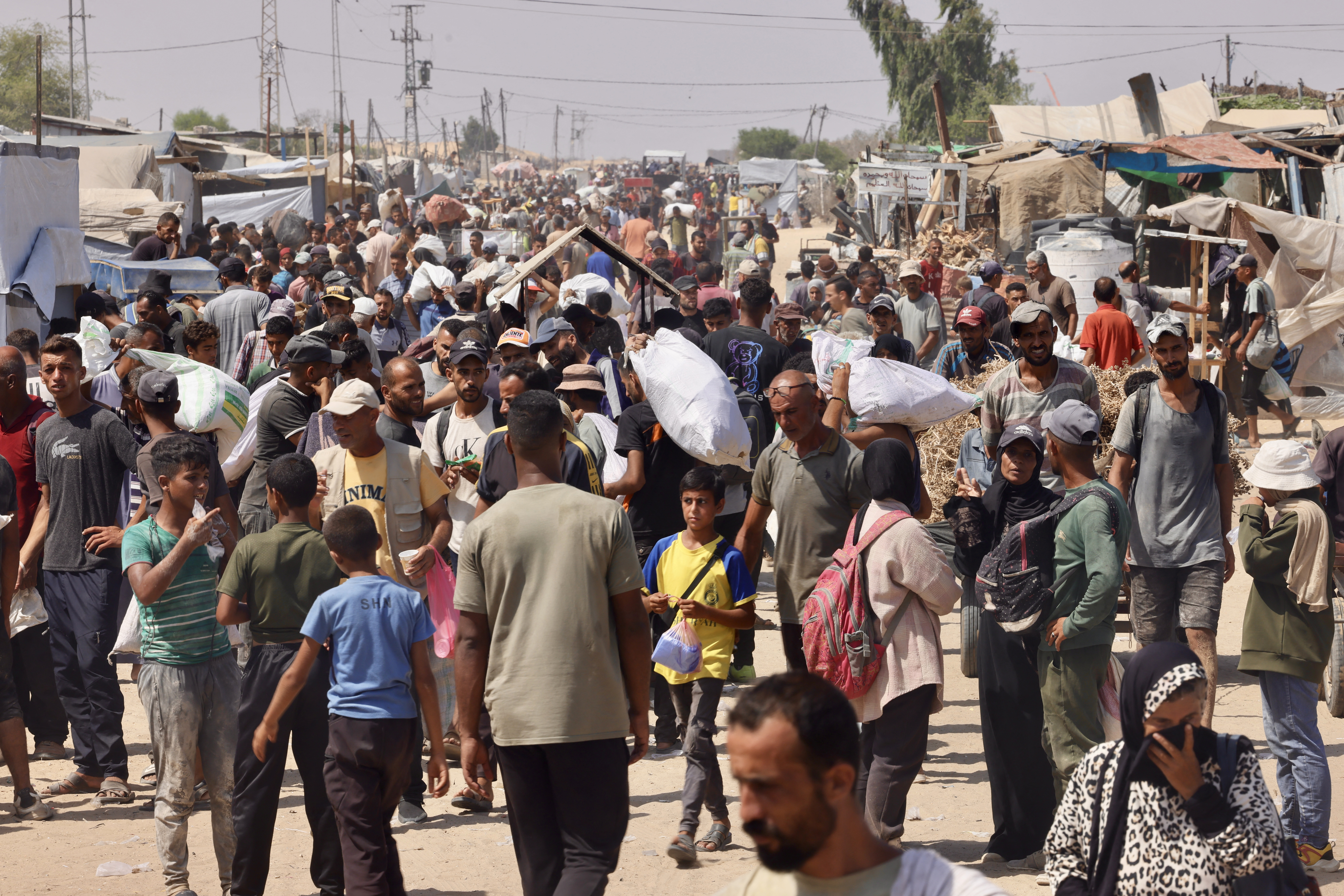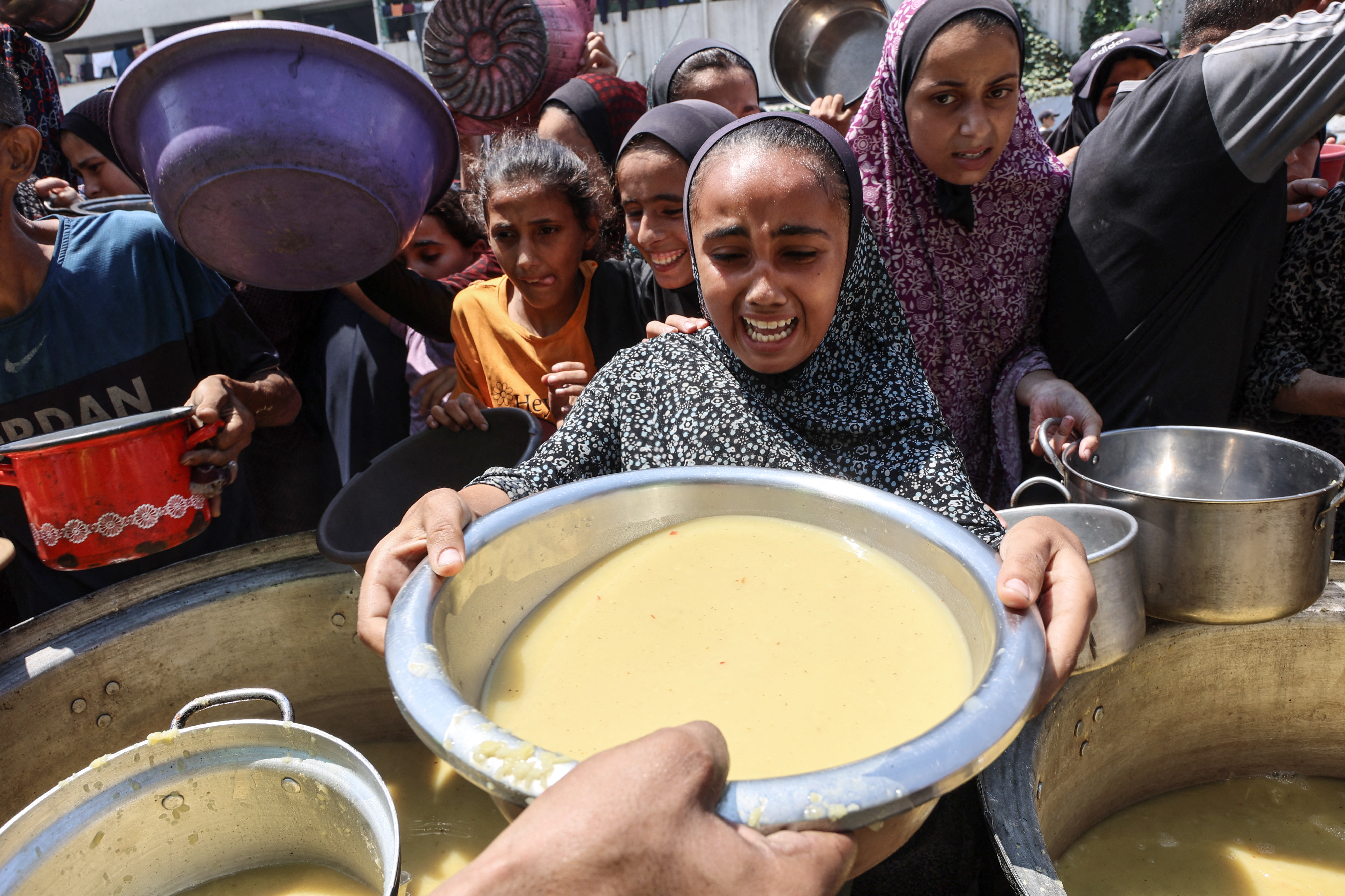
CAIRO/UNITED NATIONS/BEIRUT - Israel has rejected three of Hamas's proposed changes to the Gaza ceasefire deal, according to Egyptian sources on Wednesday.
Egypt and Qatar have delivered Israel's response to Hamas, the sources told Xinhua on condition of anonymity. In the response, Israel refused to release Palestinian prisoners in exchange for the remains of Israeli captives held by Hamas, rejected a Hamas-proposed map for the re-deployment of Israeli forces in Gaza, and declined to withdraw from the Philadelphi Corridor, a key border strip between Gaza and Egypt.
Egypt and Qatar are currently trying to persuade Hamas to reconsider and amend some of its demands to save the negotiations, according to the sources.
Casualty toll
Meanwhile, the casualty toll continues to mount among aid-seeking Palestinians and even some relief providers in Gaza despite the Israeli military tactical pause, UN humanitarians said Wednesday.
"We are still seeing casualties among those seeking aid and more deaths due to hunger and malnutrition," said the UN Office for the Coordination of Humanitarian Affairs (OCHA). "UN partners report high workloads, burnout and exhaustion, due mainly to the lack of food, among front-line workers."
The office said caseworkers in mental health and psycho-social support facilities are similarly affected.
ALSO READ: Iran rejects Trump's claim of interference in Gaza ceasefire talks
OCHA said that although the conditions for delivering aid and supplies are far from sufficient, the UN and its partners are taking advantage of any opportunity to support people in need during the tactical pause.
The office cited the challenges it faces at the fenced-off Kerem Shalom/Karem Abu Salem crossing as an example.
"For our drivers to access it, Israeli authorities must approve the mission, provide a safe route through which to travel, provide multiple 'green lights' on movement, as well as a pause in bombing, and, ultimately, open the iron gates to allow us to enter," OCHA said.
The office said the world body was allowed to bring into Gaza limited quantities of fuel through the Kerem Shalom/Karem Abu Salem and Zikim crossings. Almost half of the fuel was transferred to northern Gaza to support vital health, emergency, water and telecommunications needs.
However, it said the fuel allowed into Gaza is insufficient to meet life-saving critical needs.

A permanent ceasefire is needed more than ever. Unilateral tactical pauses alone do not allow for the continuous flow of supplies required to meet immense needs levels in Gaza, said OCHA.
The office said the United Nations and partners continue to coordinate humanitarian movements inside Gaza with the Israeli authorities.
"Yesterday, three facilitated missions allowed our staff to collect cargo containing food from the Kerem Shalom and Zikim crossings and allowed for fuel to be transferred within Gaza," OCHA said. "However, the others faced impediments, particularly delays in receiving the green light to move by the Israeli authorities, and one had to be canceled."
The office said that to scale up the delivery of aid in a manner that begins to meet people's tremendous needs, all crossings must open, a broad range of supplies, both humanitarian and commercial, be allowed to enter, aid movements inside Gaza be safeguarded and facilitated promptly, and relief workers be allowed to do their job.
Israel has been waging a large-scale war in the Gaza Strip since Oct 7, 2023, which has killed 60,138 Palestinians, injured 146,269 others, and caused massive destruction, according to an update released by Gaza's health authorities on Wednesday.
The war followed a surprise attack launched by Hamas on southern Israel, which Israel says killed more than 1,200 people and captured 251 hostages.
Israel's continued military offensive in the Strip and its closure of border crossings have led to an unprecedented humanitarian crisis in Gaza, with the UN saying that a widespread famine is taking place in the enclave. Negotiations over a new ceasefire deal have so far remained fruitless.
'Israeli threat'
Separately, Hezbollah leader Naim Qassem on Wednesday rejected calls for the group to disarm, insisting its weapons are solely for confronting Israel, not for internal use.
"We will not hand over our weapons to Israel, and the issue of weapons is a purely Lebanese internal matter," said Qassem, adding that any party demanding disarmament "is serving the Israeli project."
ALSO READ: UK to recognize State of Palestine in Sept unless Israel commits to long-term peace
Qassem warned that Lebanon faces an existential threat from both Israel and extremist groups, adding that "as long as we are alive, we will not allow Lebanon to be subjugated to Israel, nor will we permit Israel to defeat us."
Qassem said that Israel is waiting for Hezbollah's disarmament to begin expanding from the five points its army currently occupied, with the aim of seizing the remaining villages.
Despite a ceasefire reached on Nov 27, 2024, Israel has maintained a military presence at five key points along the Lebanese border.
He noted that Hezbollah supported the Lebanese state in enforcing the ceasefire but blamed Israel for repeated violations. He noted the agreement applies only to areas south of the Litani River.
Qassem also criticized US mediation, accusing US envoys of stirring instability. While Amos Hochstein offered guarantees, his successor Tom Barrack used threats, Qassem claimed. "Barrack came with intimidation, hoping to provoke internal Lebanese discord, but he was surprised to find the Lebanese position united: stop the aggression first, then we can talk," he said.


